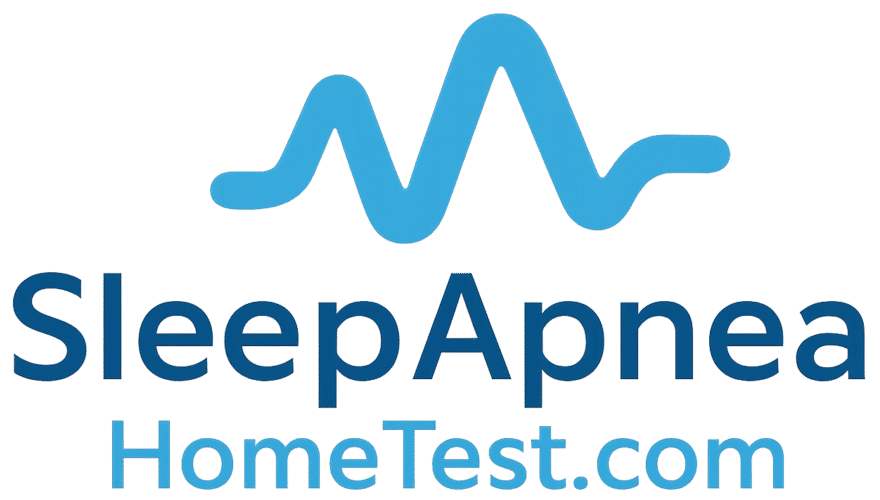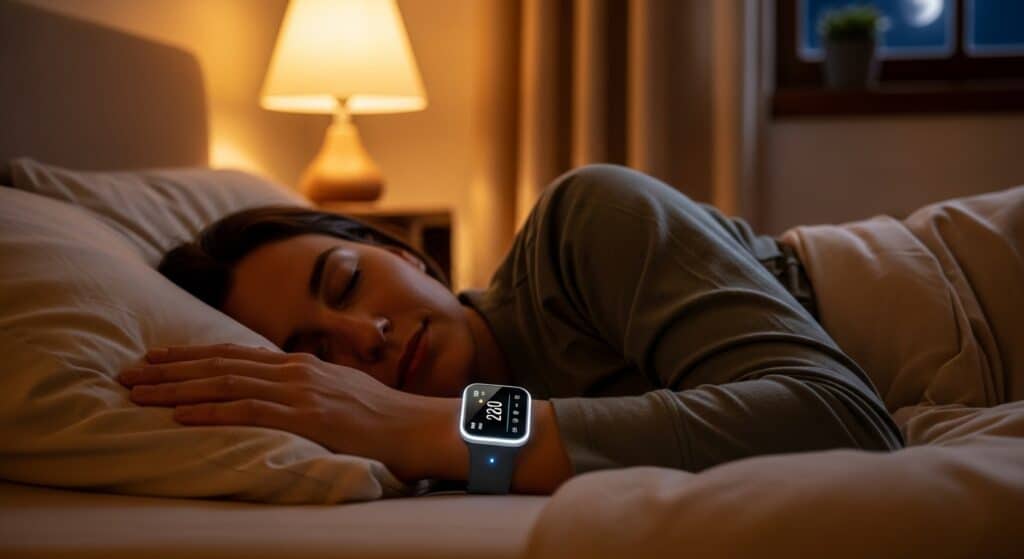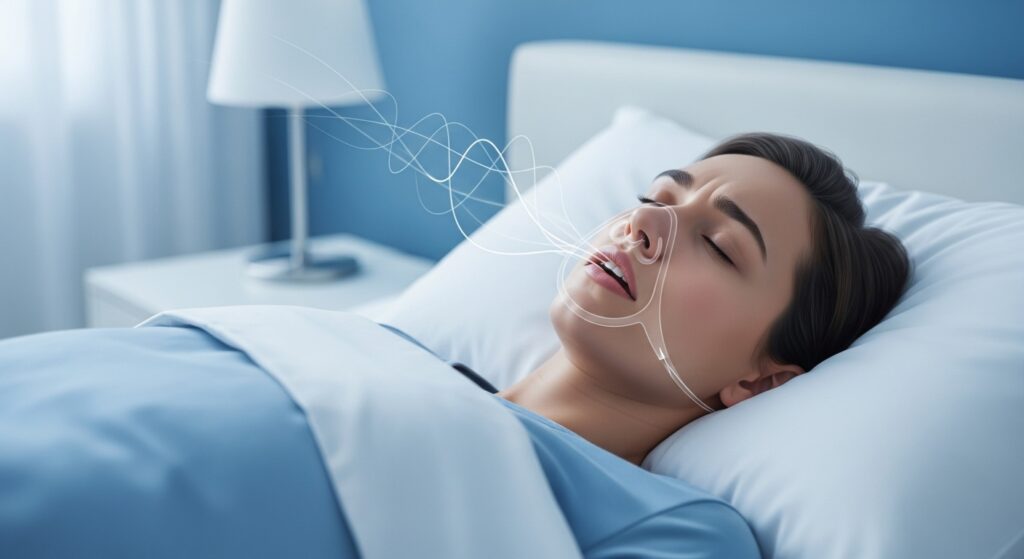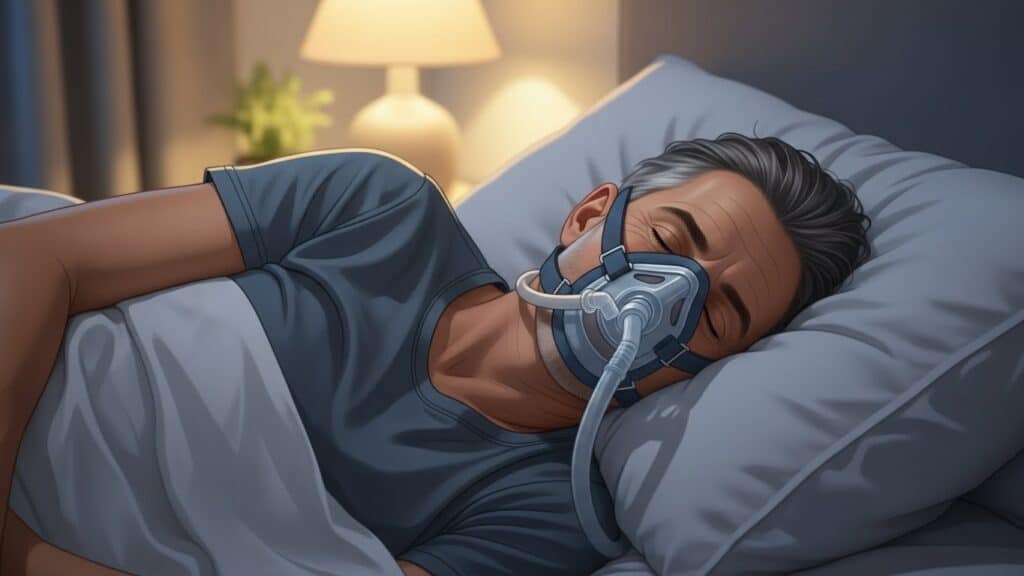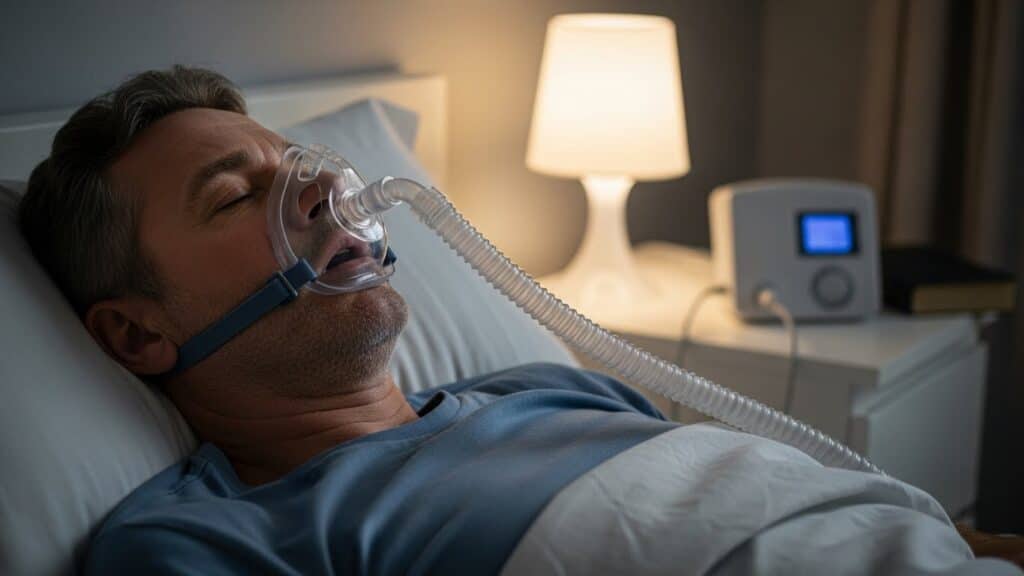You’re asleep—and then suddenly, wide awake at 2 or 3 AM with your heart racing or mind spinning. What gives?
While it’s easy to blame stress or an active brain, the true culprit might be cortisol, the body’s main stress hormone. These cortisol spikes, especially during the middle of the night, are more common than people realize—and they often tie back to a physiological issue, not just psychological stress.
Let’s break down what’s really happening when you wake up at night—and why sleep-disordered breathing might be a key factor.
What Is Cortisol, and Why Does It Spike at Night?
Cortisol is a hormone produced by your adrenal glands. It follows a natural 24-hour rhythm, known as the diurnal cortisol cycle.
Under healthy conditions, cortisol:
- Rises early in the morning to help you wake up
- Peaks around 8 a.m.
- Gradually declines throughout the day
- Reaches its lowest point at midnight
But when this rhythm is disrupted—due to chronic stress, inflammation, blood sugar imbalances, or sleep disorders like obstructive sleep apnea (OSA)—cortisol levels can spike at the wrong times, including in the middle of the night.
According to the National Institutes of Health, abnormal nocturnal cortisol levels have been linked to sleep fragmentation, poor glucose control, and even increased cardiovascular risk.
Why Cortisol Wakes You Up at Night
A spike in cortisol activates the sympathetic nervous system, preparing the body for “fight or flight.” That means:
- Faster heart rate
- Increased blood pressure
- Higher blood sugar
- Racing thoughts
In essence, your body thinks something dangerous is happening—even though you’re safe in bed. The result? You suddenly wake up, alert and anxious, with no clear explanation.
For some, these awakenings happen consistently at the same time each night, often between 1 a.m. and 3 a.m., coinciding with glucose dips or oxygen drops that the brain interprets as threats.
The Sleep Apnea–Cortisol Connection
Many people experience these spikes without realizing they have undiagnosed sleep apnea.
In obstructive sleep apnea (OSA), breathing stops intermittently throughout the night. Each time your airway collapses, oxygen levels fall, and the brain responds by triggering a stress response—cortisol release included.
A study in Sleep showed that patients with untreated OSA have significantly higher nighttime cortisol levels than healthy sleepers.
This cycle of:
- Airway collapse
- Oxygen drop
- Cortisol surge
- Sudden awakening
…can repeat dozens or even hundreds of times per night—without the sleeper remembering it.
These constant stress responses wear on your adrenal system, fragment your sleep, and prevent deep, restorative rest.
Other Causes of Nighttime Cortisol Spikes
Aside from sleep apnea, other triggers for nighttime cortisol elevations include:
- Low blood sugar (nocturnal hypoglycemia)
- Caffeine late in the day
- Overtraining or late-night workouts
- Chronic stress and rumination
- Inflammatory conditions like arthritis or autoimmune disease
- Poor sleep hygiene or irregular sleep schedules
Still, for many people, the common thread is undetected disruptions in oxygen and sleep architecture—hallmarks of mild to moderate OSA.
Signs Your Cortisol Rhythm Is Off
You may not be tracking hormones, but your body gives clues:
- Consistently waking between 1–3 a.m.
- Racing heart or anxiety at night
- Difficulty falling back asleep
- Dry mouth or gasping on waking
- Feeling wired but tired during the day
- Afternoon energy crashes
These are red flags that your body may be stuck in a cycle of stress and poor sleep, possibly worsened by breathing disruptions you don’t know you have.
How to Test for Sleep-Related Cortisol Disruption
You don’t need to visit a lab or spend the night in a sleep center.
Start with a 60-second AI facial scan that screens for sleep apnea risk using structural markers proven to correlate with OSA.
If your facial scan indicates potential issues, we’ll send a home sleep test kit—with finger-based sensors (no chest belts or wires) that monitor oxygen saturation, breathing, and heart rate across the night. Fast results and Rx support included.
This test allows you to pinpoint whether oxygen drops are triggering stress responses, giving you a clinical path forward.
Can Treating Apnea Reduce Cortisol?
Yes—several studies have shown that managing sleep apnea lowers nighttime cortisol and restores more natural circadian rhythms.
Whether it’s CPAP, oral appliances, or positional therapy, effective treatment can:
- Reduce cortisol surges
- Lower heart rate and blood pressure
- Improve A1C and glucose stability
- Boost deep sleep and REM cycles
- Decrease fatigue and anxiety
- Minimize midnight awakenings
A meta-analysis in Chest found that treating OSA led to significant reductions in nighttime cortisol, especially in people with elevated baseline levels.
Lifestyle Strategies to Support Cortisol Balance
In addition to treating underlying sleep issues, try these evidence-backed strategies:
- Go to bed and wake up at the same time every day
- Avoid screens and artificial light 1 hour before bed
- Keep your bedroom cool and dark
- Avoid heavy meals or sugar at night
- Try breathwork or meditation to lower sympathetic activity
- Avoid alcohol—it disrupts REM and worsens OSA symptoms
- Use blackout curtains or a sleep mask to improve melatonin release
These practices support your body’s natural cortisol rhythm, helping you fall asleep faster and stay asleep longer.
The Takeaway
Midnight awakenings aren’t just a nuisance—they’re a message. And often, that message is coming from your body’s stress system trying to keep you alive when oxygen drops trigger cortisol surges.
If you’re waking up wired, sweaty, or anxious in the middle of the night—especially if it happens often—it’s worth checking if your breathing is to blame.
